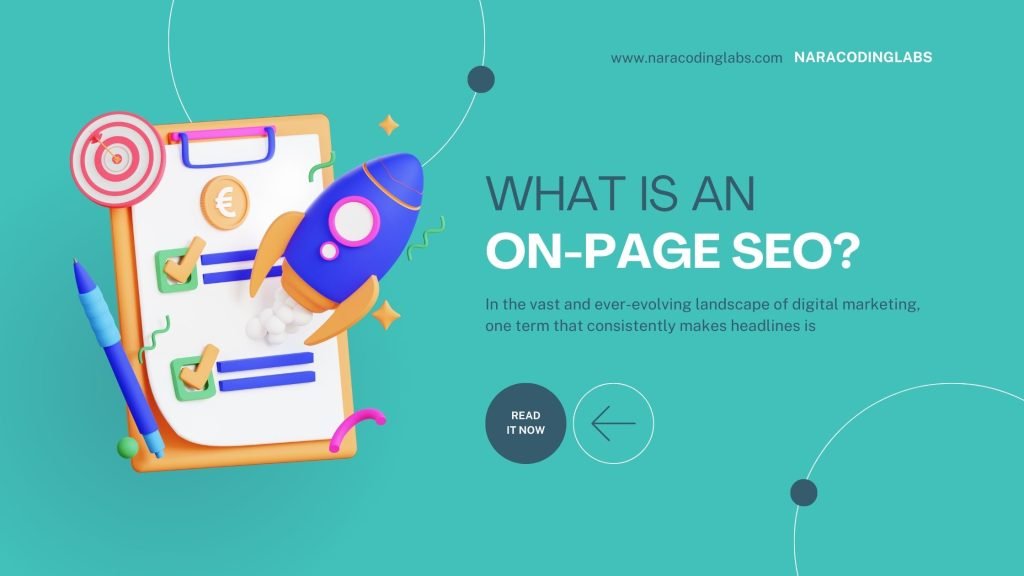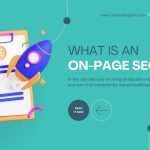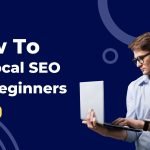In the vast and ever-evolving landscape of digital marketing, one term that consistently makes headlines is “On-Page SEO.” But what exactly does it entail, and why is it crucial for your online presence? On-Page SEO refers to the optimization of individual web pages to enhance their search engine visibility. It plays a pivotal role in improving your website’s organic traffic and ranking, In this article, we’ll break down the intricacies of On-Page SEO, explore its elements, and highlight the best practices to help your website rank higher in search engine results.
What Is On-Page Seo With Example?
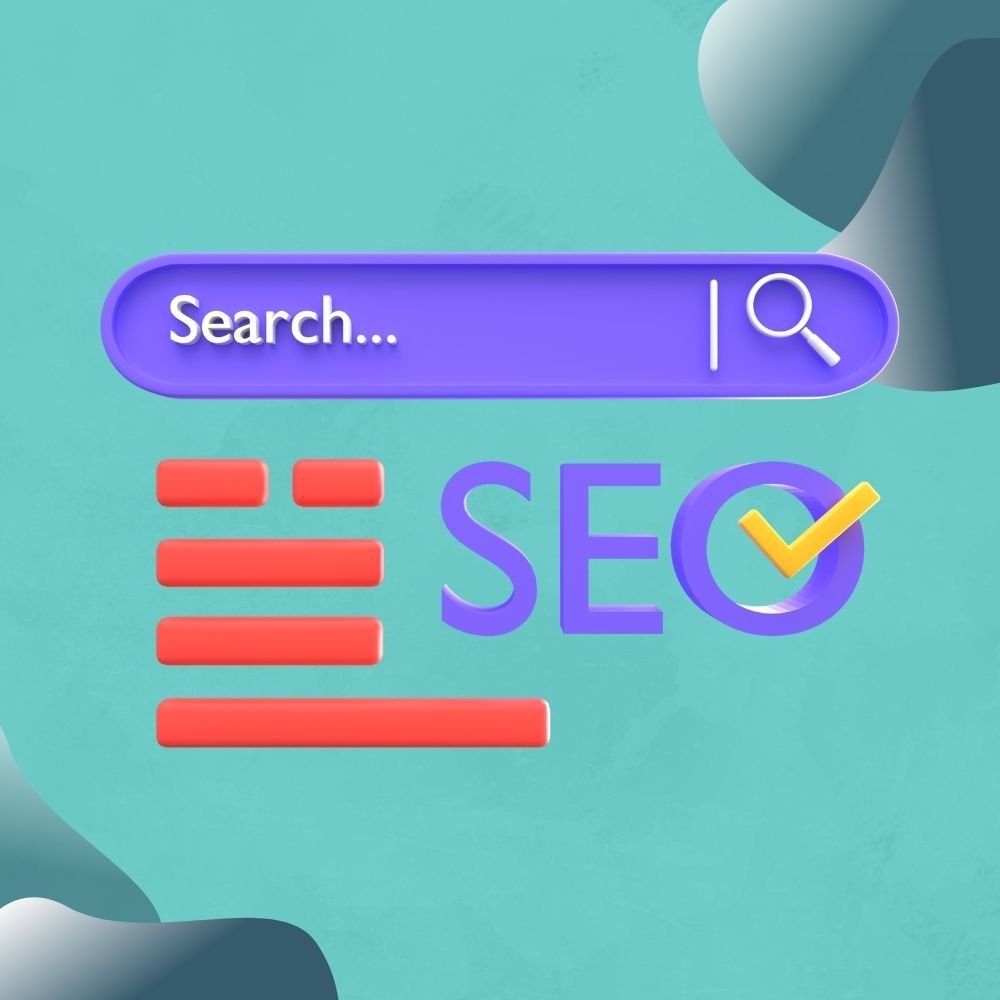
On-Page SEO, short for “On-Page Search Engine Optimization,” refers to the optimization of individual web pages to improve their visibility in search engine results. This optimization involves various elements and techniques, and it’s crucial for ensuring that your web content is not only user-friendly but also easily discoverable by search engines. On-page SEO is the practice of optimizing individual web pages in order to rank higher and earn more relevant traffic in search engines. On-page SEO involves optimizing a website’s content, titles, meta descriptions, headers, images, and other elements that affect how a page appears in search engine results pages (SERPs).
One of the most important on-page SEO factors is the content on a page. Content must be high quality, relevant, and keyword-rich in order to rank well in search engines. In addition to content, on-page SEO also includes optimizing website elements like titles, meta descriptions, headers, and images. Title tags and meta descriptions are two of the most important on-page SEO elements. They are the titles and descriptions that appear in search engine results pages, and they are the first opportunity that you have to convince people to click on your website. Therefore, it is important to make sure that your title tags and meta descriptions are well written and keyword-rich.
The title tag is the first thing that people see when they search for a website, so it is important to make sure that it is well written and keyword-rich. The title tag should include the keyword that you are targeting, and it should be no more than 60 characters long. The meta description is also important, and it should be no more than 150 characters long. The meta description should include the keyword that you are targeting, and it should also be catchy and persuasive.
It is important to keep in mind that on-page SEO is not just about optimizing the content and the website elements. You also need to make sure that your website is fast and mobile-friendly. In addition, you should make sure that you are using the right keywords and that your website is properly linked to other websites. These are all important factors that influence your website’s ranking in search engines.
What Is On-Page And Off-Page Seo?
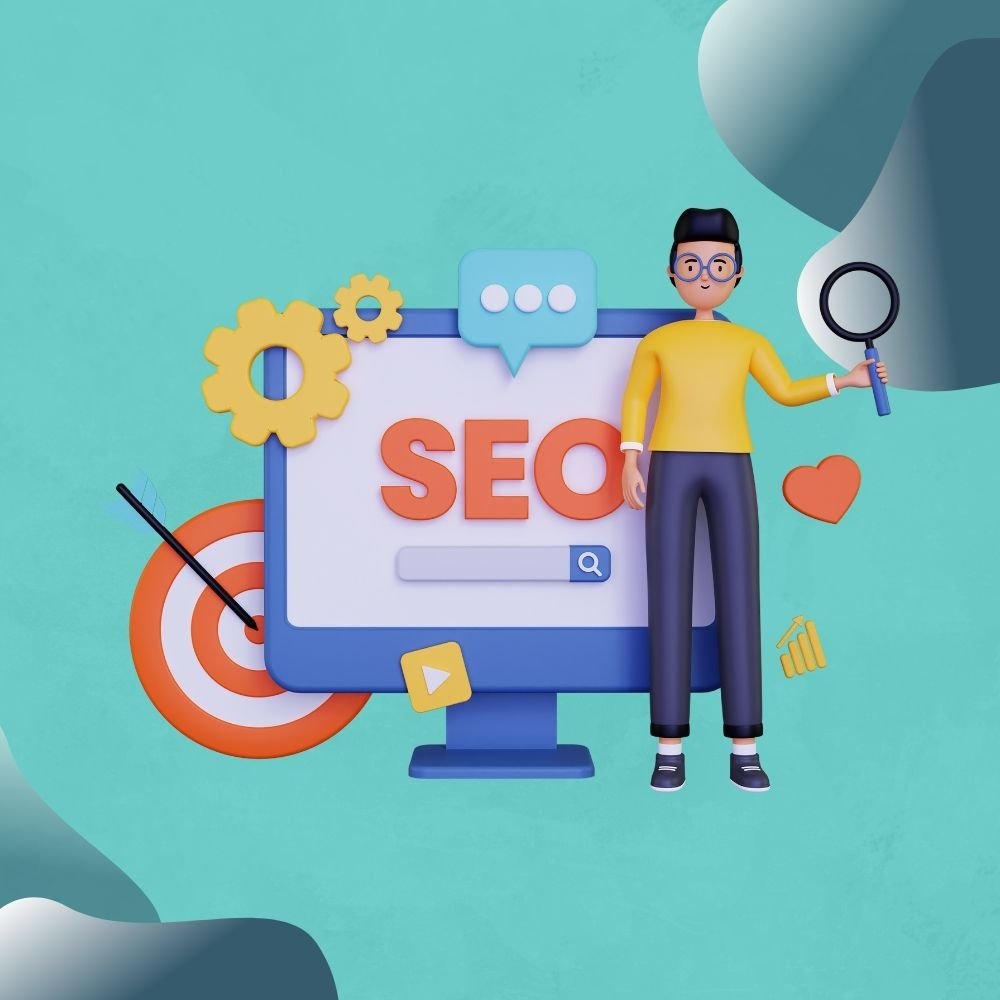
When it comes to optimizing your website for the search engines, you will hear the terms “on-page SEO” and “off-page SEO” thrown around a lot. But what do they actually mean?
On-page SEO is the process of optimizing your website’s content, structure, and other elements like titles, metatags, and anchor text to improve your website’s ranking in the search engines. Off-page SEO is the process of optimizing your website’s external factors, like backlinks and social media shares, to improve your website’s ranking in the search engines.
Both on-page and off-page SEO are important for getting your website ranked high in the search engines. However, on-page SEO is more important, because it is the foundation of your website’s SEO. If you don’t have good on-page SEO, then you won’t be able to improve your website’s ranking with off-page SEO.
There are a variety of on-page SEO techniques that you can use to improve your website’s ranking, including:
- Optimizing your website’s title tags and meta descriptions.
- Optimizing your website’s images.
- Optimizing your website’s content.
- Optimizing your website’s URL structure.
- Optimizing your website’s internal linking structure.
- Optimizing your website’s robots.txt file.
- Optimizing your website’s sitemap.xml file.
- Optimizing your website’s speed and performance.
- Optimizing your website’s usability and design.
- Optimizing your website’s social media presence.
What Is Seo Vs On-Page Seo?
When someone is looking to improve the visibility of their website, they may hear the terms “SEO” and “on-page SEO.” Both of these are important aspects of website optimization, but what do they actually mean? SEO stands for “search engine optimization.” It is the process of improving the visibility of a website or web page in search engine results pages (SERPs). This can be done through optimizing the website content, structure, and on-page elements like titles, metatags, and anchor text.
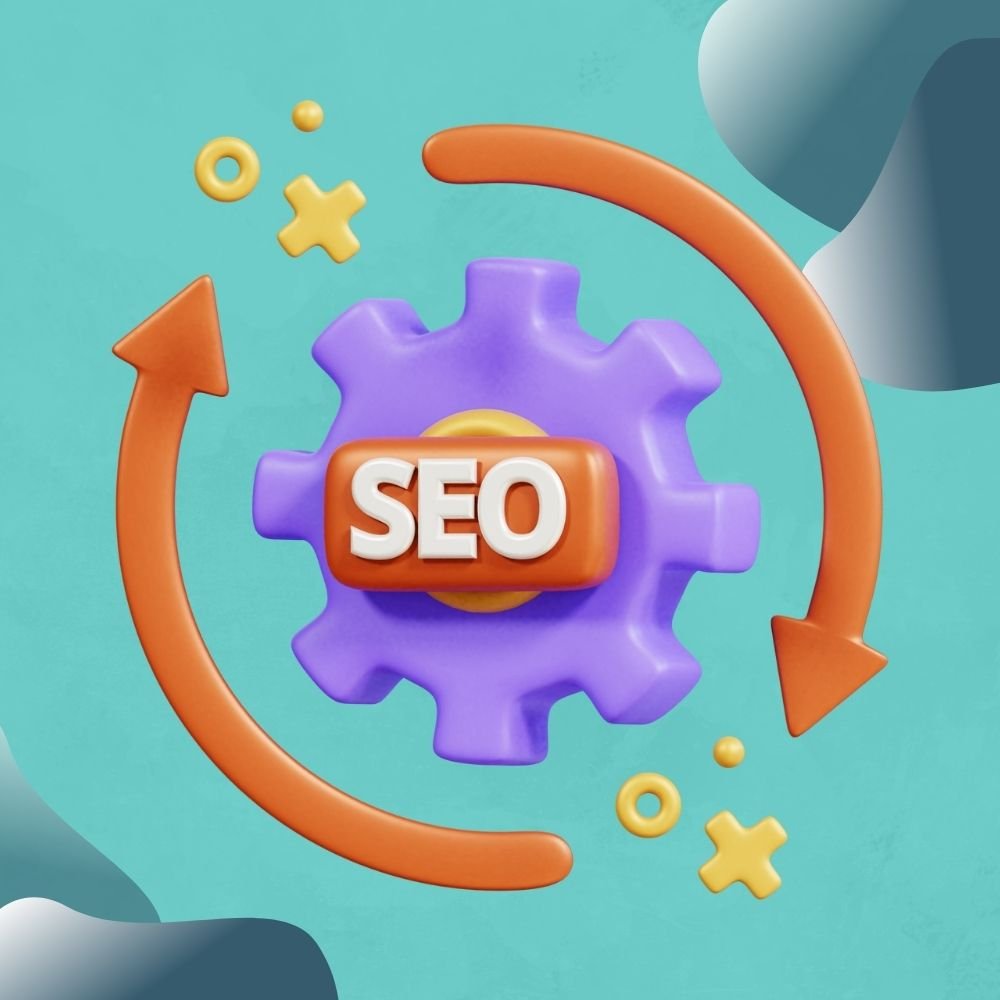
On-page SEO is the practice of optimizing individual web pages to rank higher and earn more clicks in SERPs. This can be done through optimizing the page content, title, metatags, and other on-page elements. Both SEO and on-page SEO are important for improving the visibility of a website. However, on-page SEO is more specific and can be used to target individual pages on a website. It is also a great way to improve the click-through rate (CTR) for a website. On-page SEO is the practice of optimizing individual web pages to rank higher and earn more clicks in SERPs. This can be done through optimizing the page content, title, metatags, and other on-page elements.
On-page SEO is a great way to improve the visibility of a website. By optimizing the page content, title, metatags, and other on-page elements, you can help your website rank higher in SERPs and earn more clicks. On-page SEO is also a great way to improve the CTR for a website.
Why Is On-Page Seo So Important?
On-page SEO is the practice of optimizing individual webpages in order to rank higher and earn more relevant traffic in search engines. It’s one of the most important aspects of SEO, and a practice that all businesses should undertake to ensure their website is visible to as many potential customers as possible. There are a number of on-page SEO factors that you can optimize, including your title tags, meta descriptions, header tags, images, and content. By optimizing these elements, you can make your website more visible to search engines and improve your click-through rate (CTR).

A high CTR is important because it tells search engines that your website is relevant to the keywords you’re targeting. This can help your website rank higher in search engine results pages (SERPs), which can result in more website visitors and more customers. On-page SEO is important because it can help your website rank higher in search engine results pages (SERPs),
What Is An On-Page Seo And Its Advantage?
On-page SEO is the practice of optimizing your website content and structure to improve your website’s ranking in search engine results pages (SERPs). On-page SEO is one of the most important aspects of any effective SEO strategy. There are many factors that go into on-page SEO, including the title of your page, the meta description, the header tags, the content on the page, and the images on the page. optimizing all of these elements can help you improve your website’s ranking in SERPs.
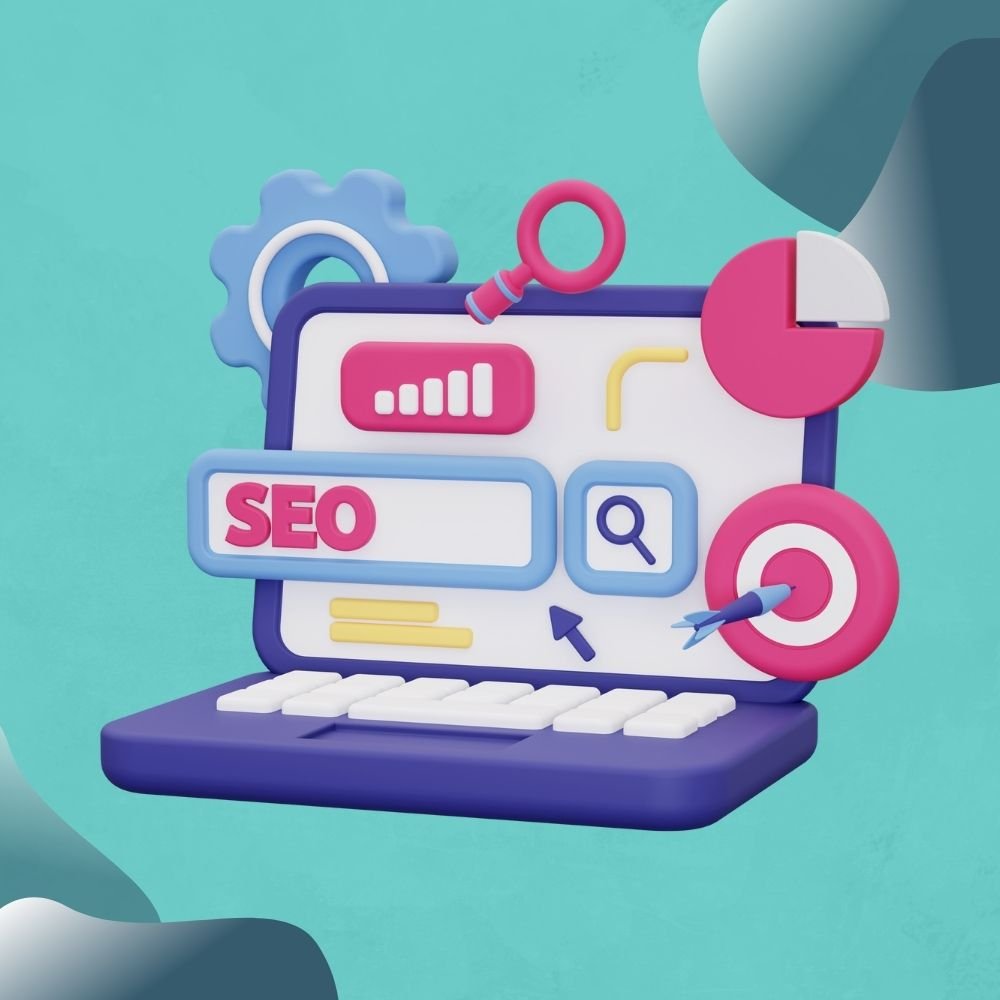
One of the biggest advantages of on-page SEO is that it’s a relatively easy way to improve your website’s ranking. There are many factors that go into on-page SEO, but most of them are easy to optimize and don’t require a lot of technical knowledge. By optimizing your website’s content and structure, you can improve your website’s ranking without having to hire a SEO specialist or purchase any SEO software.
On-page SEO isthe practice of optimizing your website’s content and structure to improve your website’s ranking in search engine results pages (SERPs). There are many factors that go into on-page SEO, but most of them are easy to optimize and don’t require a lot of technical knowledge.
The most important factor in on-page SEO is your website’s content. You need to make sure that your website’s content is relevant to your target keywords and that it’s well written and well-structured. You also need to make sure that your website’s content is updated regularly. The more fresh content you have, the more likely you are to rank high in SERPs.
Another important factor in on-page SEO is your website’s structure. You need to make sure that your website’s pages are well-linked and that your website’s navigation is easy to use. You also need to make sure that your website’s files are well-optimized. You can use a tool like Google PageSpeed Insights to help you optimize your website’s files.
Conclusion
On-Page SEO is a fundamental aspect of digital marketing that can significantly impact your website’s visibility and performance. By optimizing title tags, meta descriptions, headings, content, images, URLs, and internal links, and by following best practices, you can improve your search engine rankings, user experience, and ultimately achieve your online goals.
- What is the difference between On-Page SEO and Off-Page SEO?
On-Page SEO focuses on optimizing individual web pages, while Off-Page SEO involves activities outside your website, such as link-building and social media marketing. - How often should I update my on-page SEO elements?
It’s a good practice to regularly review and update your on-page elements to ensure they remain relevant and effective. - What is the role of meta tags in on-page SEO?
Meta tags, including title and description tags, provide essential information to search engines and users, impacting click-through rates and search rankings. - Is mobile optimization necessary for on-page SEO?
Yes, mobile optimization is essential as Google gives preference to mobile-friendly websites, and it enhances the user experience. - What is the impact of user experience on SEO?
A positive user experience leads to longer user sessions, lower bounce rates, and ultimately better SEO rankings.
By following the principles of on-page SEO and staying updated with search engine algorithms, you can pave the way for online success.
